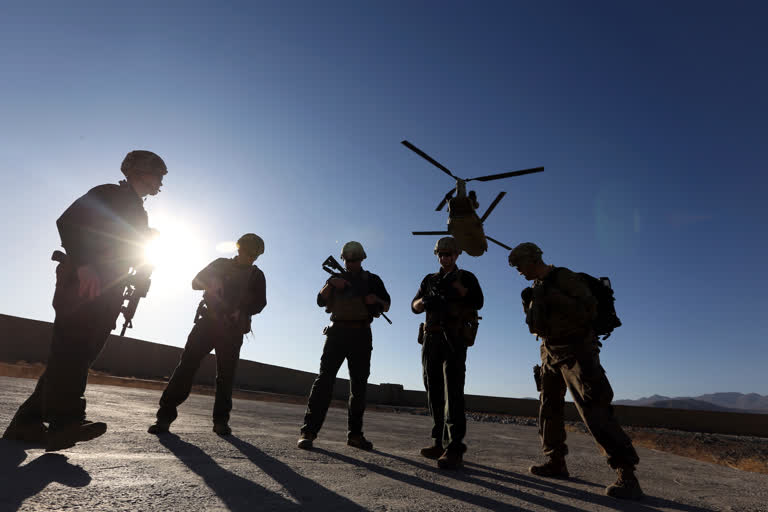Washington: Top officials in the White House were aware in early 2019 of classified intelligence indicating Russia was secretly offering bounties to the Taliban for the deaths of Americans, a full year earlier than has been previously reported, according to US officials with direct knowledge of the intelligence.
The assessment was included in at least one of President Donald Trump’s written daily intelligence briefings at the time, according to the officials. Then-national security adviser John Bolton also told colleagues he briefed Trump on the intelligence assessment in March 2019.
The White House did not respond to questions about Trump or other officials’ awareness of Russia’s provocations in 2019. The White House has said Trump was not and still has not been briefed on the intelligence assessments because they have not been fully verified. However, it is rare for intelligence to be confirmed without a shadow of a doubt before it is presented to top officials.
Bolton declined to comment Monday when asked by the AP if he had briefed Trump about the matter in 2019. On Sunday, he suggested to NBC’s “Meet the Press” that Trump was claiming ignorance of Russia’s provocations to justify his administration’s lack of a response.
“He can disown everything if nobody ever told him about it,” Bolton said.
The revelations cast new doubt on the White House’s efforts to distance Trump from the Russian intelligence assessments. The AP reported Sunday that concerns about Russian bounties were also included in a second written presidential daily briefing earlier this year and that current national security adviser Robert O’Brien had discussed the matter with Trump. O’Brien denies he did so.
On Monday night, O'Brien said that while the intelligence assessments regarding Russian bounties 'have not been verified,' the administration has 'been preparing should the situation warrant action.'
Read more:Iran issues arrest warrant for Trump, asks Interpol to help
The administration’s earlier awareness of the Russian efforts raises additional questions about why Trump did not take any punitive action against Moscow for efforts that put the lives of Americans service members at risk. Trump has sought throughout his time in office to improve relations with Russia and its president, Vladimir Putin, moving earlier this year to try to reinstate Russia as part of a group of world leaders it had been kicked out of.
Officials said they did not consider the intelligence assessments in 2019 to be particularly urgent, given that Russian meddling in Afghanistan is not a new occurrence. The officials with knowledge of Bolton’s apparent briefing for Trump said it contained no 'actionable intelligence,' meaning the intelligence community did not have enough information to form a strategic plan or response. However, the classified assessment of Russian bounties was the sole purpose of the meeting.
The officials insisted on anonymity because they were not authorized to disclose the highly sensitive information.
The intelligence that surfaced in early 2019 indicated Russian operatives had become more aggressive in their desire to contract with the Taliban and members of the Haqqani Network, a militant group aligned with the Taliban in Afghanistan and designated a foreign terrorist organization in 2012 during the Obama administration.
The National Security Council and the undersecretary of defense for intelligence did hold meetings regarding the intelligence. The Pentagon declined to comment and the NSC did not respond to questions about the meetings.
Concerns about Russian bounties flared anew this year after members of the elite Naval Special Warfare Development Group, known to the public as SEAL Team Six, raided a Taliban outpost and recovered roughly $500,000 in US currency. The funds bolstered the suspicions of the American intelligence community that the Russians had offered money to Taliban militants and other linked associations.
The White House contends the president was unaware of this development as well.
